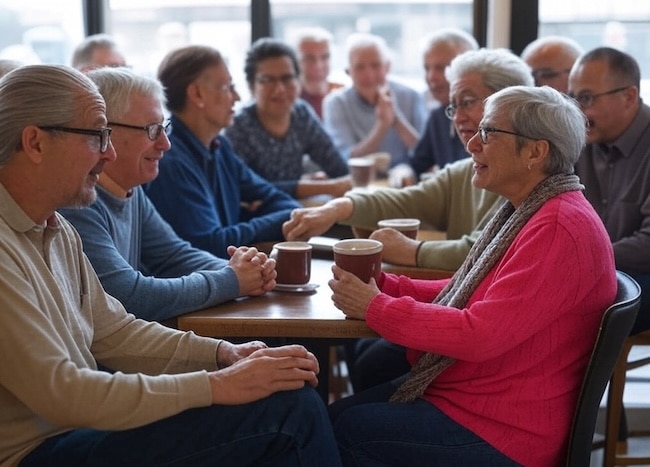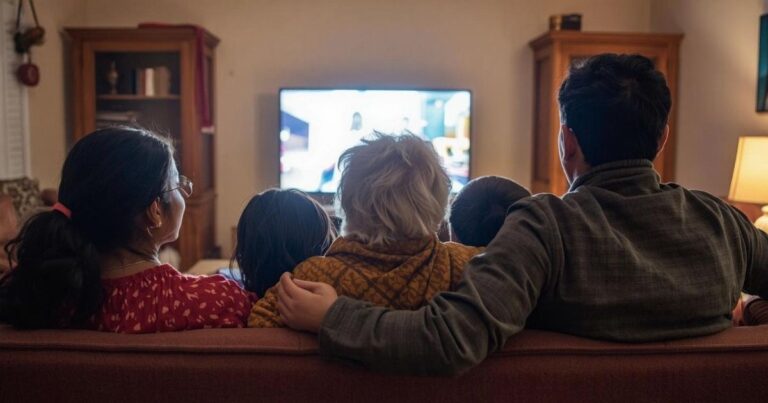For people living with dementia and their caregivers, social connection can be both joyful and challenging. A memory cafe offers a welcome solution. Safe, engaging spaces where individuals with cognitive changes can enjoy meaningful activities, companionship, and fun without pressure or stigma.

These gatherings not only reduce isolation but also celebrate abilities rather than focus on limitations. In this article, we explore how a Memory Cafe works, its benefits, and how to find or even start one in your community. Discover how these special programs bring light, laughter, and connection to families navigating dementia.
What is a Memory Café?
A Memory Cafe is a comfortable, supportive environment where people with dementia and their family caregivers can socialize, build support networks, and enjoy dementia-friendly activities together.
These groups provide a welcoming space for people with Alzheimer’s disease, dementia, mild cognitive impairment (MCI), memory impairment, memory loss, and people with other cognitive disorders, like stroke survivors.
Most Memory Cafe groups meet once or twice a month in local community locations, such as coffee shops, senior centers, parks, churches, libraries, or even museums.
These groups are free to join and are usually run by health care or social services professionals, nonprofit groups, or volunteers who coordinate activities, provide guidance, and respond to questions or requests for resources.
We explain the benefits of Memory Cafés for people with dementia, typical activities, where they are held, how to find one near you, and why they cannot be used for respite care.
Benefits of Memory Cafés for People with Dementia
Staying socially active and engaged with the world helps delay Alzheimer’s and dementia symptoms.
A Memory Café helps people living with dementia engage meaningfully with their community. It's an engaging environment that helps stimulate conversation and social interaction.
Plus, some people with dementia may display behaviors that make social outings uncomfortable for them or others. This often leads to loneliness and isolation for people with dementia and their caregivers.
A Memory Café's welcoming environment takes the stress out of going out in public and socializing.
People living with dementia and their family caregivers don’t need to worry about being judged or misunderstood. They can socialize and enjoy each other's company without feeling self-conscious.
They’re also places where a dementia caregiver can get support and exchange information with other caregivers in similar situations.
Memory Café Activities
Each Memory Cafe is unique, and all of them offer opportunities for socializing.
Some may focus on dementia-friendly activities or outings, while others may enjoy music, painting, crafts, conversation, exercise, or education.
Even though Memory Café activities vary, they all tend to focus on topics that are likely to evoke pleasant memories of times past or laughter and positive feelings.
Where Do Memory Cafés Exist?
Memory Cafés are offered in a wide variety of locations, including:
- Coffee shops
- Restaurants
- Hospitals
- Libraries
- Museums
- Conference rooms
- Schools, colleges, and universities
- Community and senior centers
- Assisted living and other senior living communities
- Faith-based organizations
Find a Memory Café Near You
The Memory Café Directory website has over 1,200 listings of Cafés located in the United States, Canada, United Kingdom, and Australia.
To find a Memory Café near you, first select your country, then click on a state or region to view a list of all the Cafés in that area, along with descriptions and contact information for each.
In addition, there are also nearly 200 virtual Memory Café listings that can be accessed from anywhere with an internet connection.
A Memory Café Isn’t Respite Care
Because it’s a supportive environment for people with dementia, families often wonder if they can take their older adult to a Memory Café and leave to run errands or take a break for an hour or two.
However, a Memory Café isn’t a place to “drop off” your older adult for a while. A caregiver needs to accompany each person with dementia.
Instead of thinking of it as a source of respite care, think of a Memory Café as a place to enjoy social activities together as a break from the usual routine.
Many seniors and caregivers miss the social activities and outings they used to enjoy before dementia symptoms made them too challenging. Regularly participating in Memory Cafés brings these activities back into their lives.
Plus, don’t underestimate how supportive it can feel to spend time with other dementia caregivers. Seeing that you’re not alone in this situation and being able to talk with others who truly understand are great stress reducers.
Final Thoughts About the Memory Cafe
Remember, a Memory Café isn't about focusing on what's been lost, but about celebrating the joy and connection that are still very much possible. It's a space where your loved one can be themselves, free from the pressure to remember, and where you can connect with others who truly understand the journey.
This small investment of time can yield enormous returns in mood, reduced isolation, and overall well-being for both of you. Why not find a local café and pay a visit? Stepping through that door might be the beginning of a brighter, more supported chapter in your caregiving story.
Next Steps: Use the Memory Café Directory website to find a Memory Café near you
Recommended for you:
- 10 Fun, No-Fail Activities for People with Dementia
- 4 Ways Reminiscence Therapy for Dementia Brings Joy to Seniors
- How to Understand and Manage Dementia Behaviors: A Comprehensive Guide
About the Author

Connie is the founder of DailyCaring.com and was a hands-on caregiver for her grandmother for 20 years. (Grandma made it to 101 years old!) She knows how challenging, overwhelming, and all-consuming caring for an older adult can be. She also understands the importance of support, especially in the form of practical solutions, valuable resources, and self-care tips.














I am surprised (shocked!) and saddened to see how few memory cafe locations are offered in Florida. FLORIDA! There is dearth of resources in the Orlando area for respite care, memory cafes and senior activities.
We’re sorry to hear that you’re not finding enough resources in your area. If you haven’t already, you may want to try these two organizations that serve the Orlando area to see if they have the type of services you’re looking for:
– https://www.seniorresourcealliance.org/
– https://elderaffairs.org/
We accidentally created a Memory Cafe-like activity by setting up a weekly beginner Tai Chi class for six senior care couples. Tai Chi helps balance and mobility without requiring perfection, is non-competitive, and is adaptable for a range of abilities. Having tea and snacks afterwards encouraged participants to stay and chat, which actually was the real purpose. Care-receiving participants included Parkinson’s, brain injury, Alzheimer’s, and mobility issues. The local library provided a free accessible private-enough room. A small grant covered the instructor and refreshments for this experiment. The group wants to continue it in September as a paid program, but rent time at the local dance studio. That has mirrors for a better view of the instruction.
It seems to be working well as a limited group (recruited and invited, rather than advertised) but it would be easy to create additional small groups. The current participants would not have joined if it had started as a large public program – just as they do not attend other local events. Lowering the social risk helped them come in.
That’s amazing! It’s wonderful that you created this group that provides a fun, supportive social activity along with tai chi lessons for people who wouldn’t be interested in larger programs.
I have found five Memory Cafes in our area and took my husband to the closest one two times. He was okay about going both times and seemed to like the games/exercises in the afternoon rather than the art in the AM. After the second time, he expressed adamantly that he didn’t want to go again. He was an academic, has written five books and I’m sure feels he doesn’t need activities like this. How does a caregiver respect his desires yet encourage him to see the benefits of the cafe for both of us? Any suggestions would be welcome.
It’s great that you tried some of the Memory Cafes in your area. If the others aren’t too far, you might try them too. Everyone is different, so perhaps your husband would enjoy a different mix of people or activities in another group. Or, it’s possible that they just don’t suit him at this time. Sometimes people with dementia enjoy different activities as the disease progresses, so you could try again in the future.